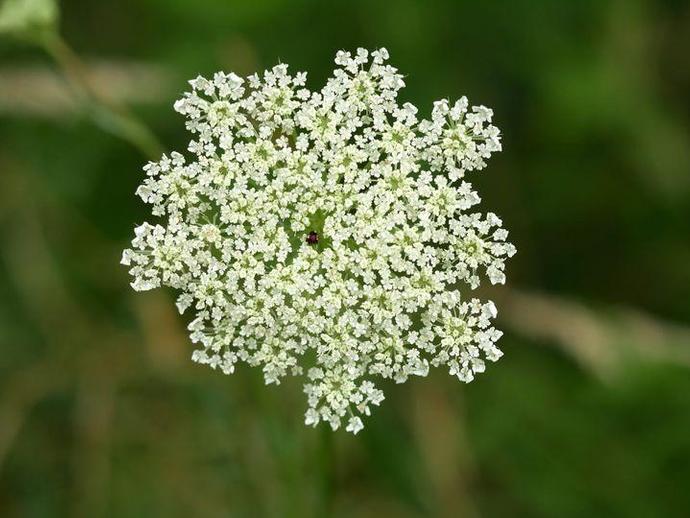July 30, 2021
Ben here with the Friday edition of #BenInNature presented by our friends at Carter Bank & Trust!
I've showcased a bunch of spiders and parasitic flies this week, so let's close out the week with a nice, pleasant flower: Daucus carota, also known as Queen Anne's lace!
This plant goes by a few other names, including wild carrot, bishop's lace, and bird's nest, but Queen Anne's lace was the name my grandma taught me. According to the folklore surrounding the plant, it's named after either Anne, Queen of Great Britain, or her great grandmother, Anne of Denmark. As the story goes, the flowers resemble lace and the single red flower in the center is supposed to be a drop of blood from where Anne pricked her finger while stitching the lace.
As far as the name "wild carrot" goes, the roots of this plant are edible just like cultivated carrots, although they have to be collected while young or they'll quickly become too tough to eat. The carrots we eat are cultivars of a subspecies of this plant! The flowers are apparently sometimes battered and fried. While that sounds delicious, I'd recommend avoiding eating this plant just to be on the safe side; it bears a resemblance to poison hemlock (Conium maculatum), and I'd hate for anyone out there to accidentally pull a Socrates.
ABOUT #BenInNature
Social distancing can be difficult, but it presents a great opportunity to become reacquainted with nature. In this series of posts, Administrator of Science Ben Williams ventures outdoors to record a snapshot of the unique sights that can be found in the natural world. New updates are posted Monday - Friday, with previous posts highlighted on the weekends. This series of posts is made possible thanks to the support of VMNH Corporate Partner Carter Bank & Trust (www.cbtcares.com).
NATURE PHOTO IDENTIFICATIONS
If you discover something in nature that you would like help identifying, be sure to message us right here on Facebook with a picture (please include location and date of picture) and we'll have our experts help you identify it!

 Hours & Admissions
Hours & Admissions Directions
Directions

